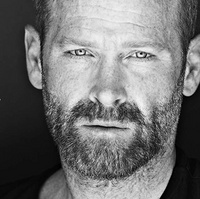On the importance of being idle
Prelude
Anna Della Subin is a writer, critic, and independent scholar. She is the author of Not Dead But Sleeping (Triple Canopy, 2016), a book-length essay on the cultural politics of sleep. Her work has appeared in the London Review of Books, Harper’s, The New York Times, The White Review, and The New Yorker online, among other places. She is also a contributing editor at Bidoun, a publishing and curatorial initiative focused on the Middle East and its diasporas. Her book Accidental Gods, on men inadvertently turned into deities, is forthcoming from Metropolitan/Henry Holt (US) and Granta (UK).
Conversation
On the importance of being idle
Writer Anna Della Subin on the unsung values of doing nothing, procrastination as its own form of productivity, and the mythological power of sleep.
As told to Meg Miller, 3115 words.
Tags: Writing, Process, Time management, Mental health, Creative anxiety.
The Egyptian novelist Albert Cossery, whose book Laziness in the Fertile Valley you wrote the afterword for, has said, “The more you’re idle, the more you have time to reflect.” As you point out in your essay, he really did live his life in accordance to this idea, and he was pretty unprolific because of it. Is idleness important to you and your writing practice?
Very much so. I’m definitely a follower of Saint Cossery. I worship at the altar. I’m not prolific either. Sometimes I see those “How I Get it Done” articles where people are waking up at 5am to meditate, and I find it so gruesome, like watching a horror film where you can’t look away.
Now that I’m writing a book under contract, though, I’ve had to carve out more of a writing routine for myself than I used to. It’s hard because I’m neither a morning lark nor a night owl. There’s no species of bird that can capture me. I’m more like a sloth. But ideas really do come to you when you’re going for a walk or just staring off into space. You need that space of idleness and laziness. It is still a kind of incubator of my best ideas and thoughts.
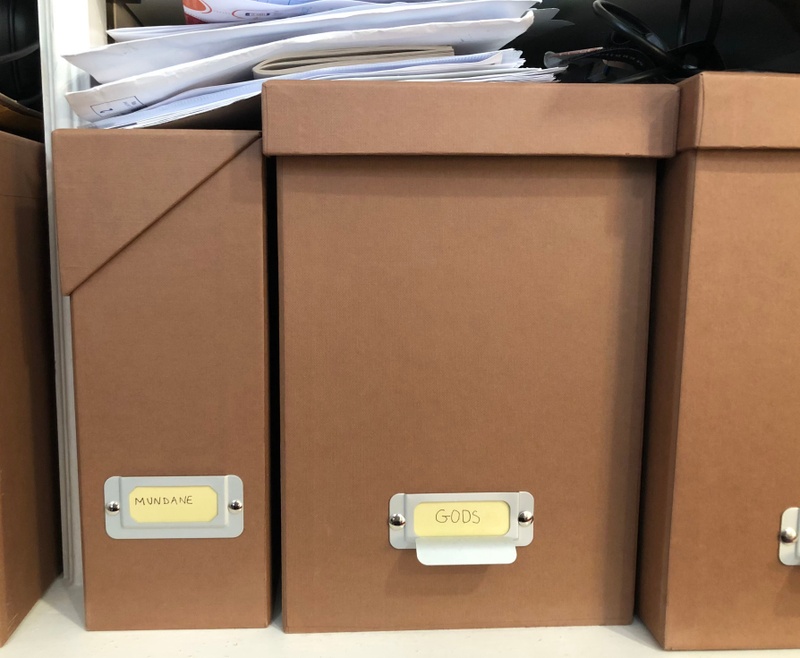
What kind of writing routine have you carved out?
I have a very monastic existence, either at home or in the library. I start at 9am or 10am. It depends what stage I’m at with an essay or chapter, but reading for research will also be a big part of my day. I tend to cover everything I read with a pale yellow palimpsest of Post-Its. My partner once found one of my notes floating on the sidewalk several blocks from our home. I finish writing maybe around 6pm, and read more in the evenings. I can only write at night under the most dire of circumstances. This year, though, I really have to work to defy my own nature.
Cossery’s own family, and in particular his father, provided the inspiration for the family of brothers in Laziness, all of whom sleep all day and all night. What did you grow up learning about laziness?
It’s funny, I also have a father who doesn’t spend very much time awake. I think he would say that his real life takes place when he’s asleep, and waking life acts as the brackets around that. I grew up learning to pay attention to my dreams. Some of my earliest memories from childhood are actually of dreams I had, rather than of things that happened to me when I was awake. It’s good preparation for being a writer, dreaming.
But the other side to my fascination was that I really struggled with insomnia. So when I’m writing about 300 years of sleep, it’s aspirational to me.
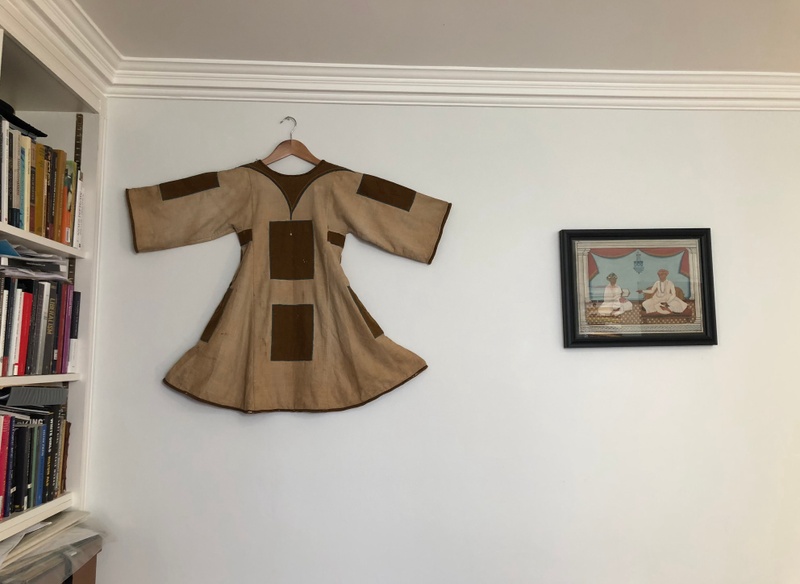
Do you still suffer from insomnia?
I do. It’s distressing because, as I write in Not Dead But Sleeping, I truly believe that the sleepers are the resistance. There’s this great quote from the philosopher Emil Cioran that goes, “The tyrant lies awake—that is what defines him.” He writes about how so many autocrats have been insomniacs, most famously Hitler. Now there’s Trump up at 5am tweeting. When I have insomnia, I feel like I’m on the wrong side of history.
Writing about sleep seems like a challenge, since it could quickly get boring. But actually sleep is such a pleasure, and the way that you write about it reflects that. I’m thinking of one line in particular, where you describe falling asleep “like a stone slipping to the bottom of the pool.”
There’s the old trope that there’s nothing more boring than hearing about another person’s dream. I guess there is a certain mischievousness to writing about it. But sleep is this vast subterranean world that’s just as alive to me as the waking life. Finding a language to capture that is exciting to me.
I do feel like I’m kind of a scuba diver going off to sleep every night with my mask around my head. Then when I don’t sleep I have a lot of time to contemplate what sleep itself is like.
What made you start writing so much about about sleep and laziness?
It was in thinking about dreaming that led me to sleep. I did a project about dreams after 9/11, looking at both the dreams of New Yorkers and the dreams of the hijackers, which we actually have testimonies of. I was trying to find a different way to write history. In 2011, I moved to Cairo with Bidoun to cover the Arab Spring, and I started asking people what dreams they were having about the uprisings. It was there that I started researching Cossery, who in turn was greatly inspired by this play by Tawfiq Al-Hakim, The People of the Cave. It tells the story of three men fleeing persecution who fall asleep in a cave for 300 years, a Christian miracle tale that also appears in the Quran. I became obsessed with tracing the myth of the sleepers, with how it is so often told at moments of political awakening, and the work took off from there.
With all these projects, I wanted to tap into the dream world of politics. But it relates to what motivates all of my work: trying to figure out how narratives move people. How do ideas catch fire? There’s the definition that I love of myth, this idea that mythology is language going beyond its intentions.
I wonder if writing about mythology like that influences not just the subject that you write about, but the way that you write.
I see myself as a sort of modern day myth-maker, which is not to say that what I write is any less “true.” When I write on commission, sometimes on my first drafts editors will say, “Can we pin this down to earth a bit more?” Like, “This is too much on the mythic plane.” Then I have to anchor it with more dates, names, places. But I think the way I connect ideas, the way I use language, is deeply mythological in that sense. I also surround myself with talismanic objects when I’m writing.
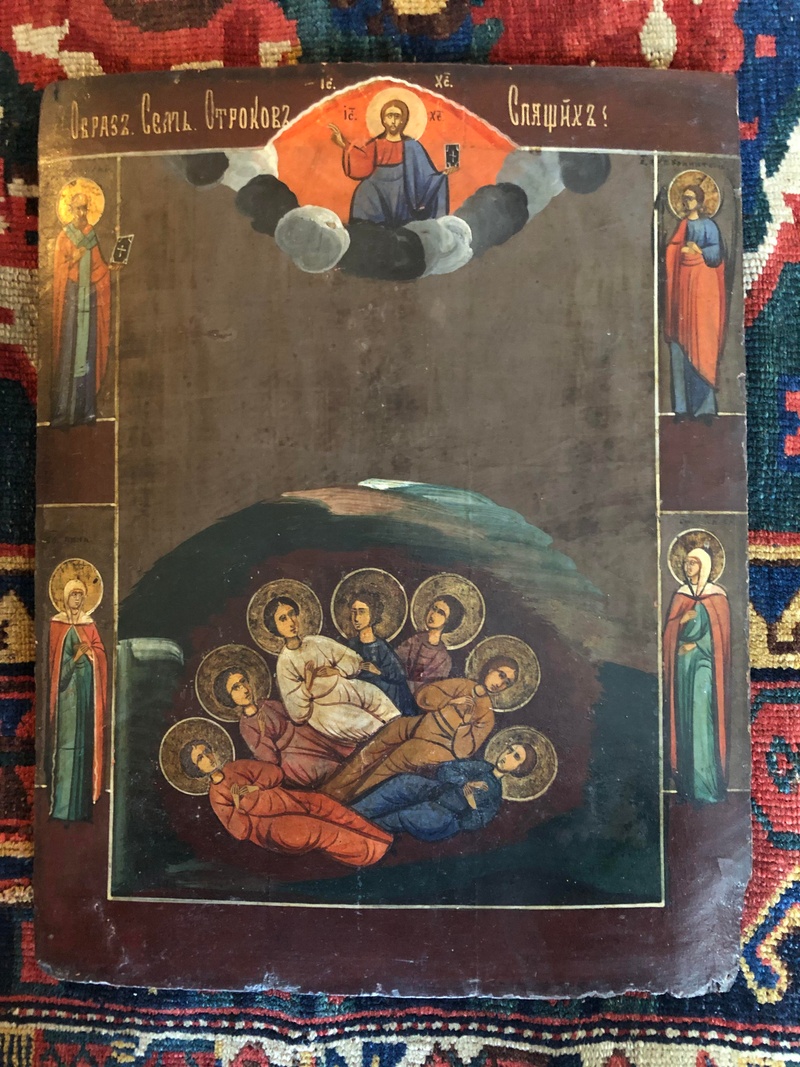
Really? Like what?
When I was writing about the sleepers, my partner managed to find a Russian Orthodox icon of them from 1780. It looks quite weird. I think it was left unfinished by the painter—a work in progress, fittingly. Another talisman is a robe that was worn by a child follower of the Mahdi, who led a messianic, anti-colonial uprising in the Sudan in the late 19th century. It looks like a ghost on the wall. There are lots of strange sacred objects in my office. I keep my Post-Its on an English nursery dish that says, “To Be Happy Without Being Holy Is Impossible.” The message is very bossy but somehow also encouraging. In my book I write about the Ethiopian emperor Haile Selassie and the birth of the Rastafari religion. I found a silver plate from when Selassie was exiled by Mussolini to England, and resorted to selling off his Lion of Judah-monogrammed silver. I found one for not too much money on eBay. Most of my talismans are from the internet.
You wrote a New York Times op-ed about the stigma of procrastination, and the cycle of guilt and shame that accompanies it in a time of always-on productivity. Are you a procrastinator yourself?
Having read a lot of procrastination theory, I’ve begun to recognize what I do as “structured procrastination.” Which is to say, I procrastinate from one thing by doing something else. I procrastinate from writing emails and all kinds of quotidian tasks by writing, reading, or falling into scholarly rabbit holes. So actually, procrastination gives me focus on what I’m writing, but the mundane aspects of life slip away in the cracks.
How do you deal with it?
By feeling guilty, of course. I try to keep at least one militantly administrative day a week, though I’m still learning how to balance time. But then sometimes you’ll find a to-do list that you wrote five years ago and you realize you never did anything on the list but it never really mattered at all.
Alongside topics of sleep, laziness, procrastination, and political awakenings, you are now writing a book on men who accidentally become gods. Even when the subject of your writing varies, they all seem to inform each other. Do you feel like all of your writing stems from the same vein of research?
I think of my subjects as waves following one after another that all come out of the same sea. Thinking about political awakening was really what led me to deification in a way that probably wouldn’t seem immediately obvious. But one thing I’m looking at in the book is how deification has been this powerful and completely overlooked form of political resistance in modern history, and how it’s been present at all these same moments of awakening.
Like the sleepers, deification is this other kind of myth-making that is everywhere with us today. I’m interested in how these myths have been constructed and used as a powerful force for decolonizing movements. With the Rastafarians, for example, their embrace of Haile Selassie was very much an act of empowerment in a Jamaica that was still under British rule. Same with the deification of Prince Philip on the island of Tanna in Vanuatu, however unlikely seeming. That also occurred at this moment of decolonization.
The other thing that I’m trying to do across my work is to understand where our concepts come from. It’s almost like an esoteric kind of intellectual history. I’m writing a book about accidental deification, but I’m also looking at how “religion” itself formed as a concept in our modern sense, and exploring what these strange sects or misfired acts of devotion can teach us about the creation of religion itself. How did this idea coalesce?
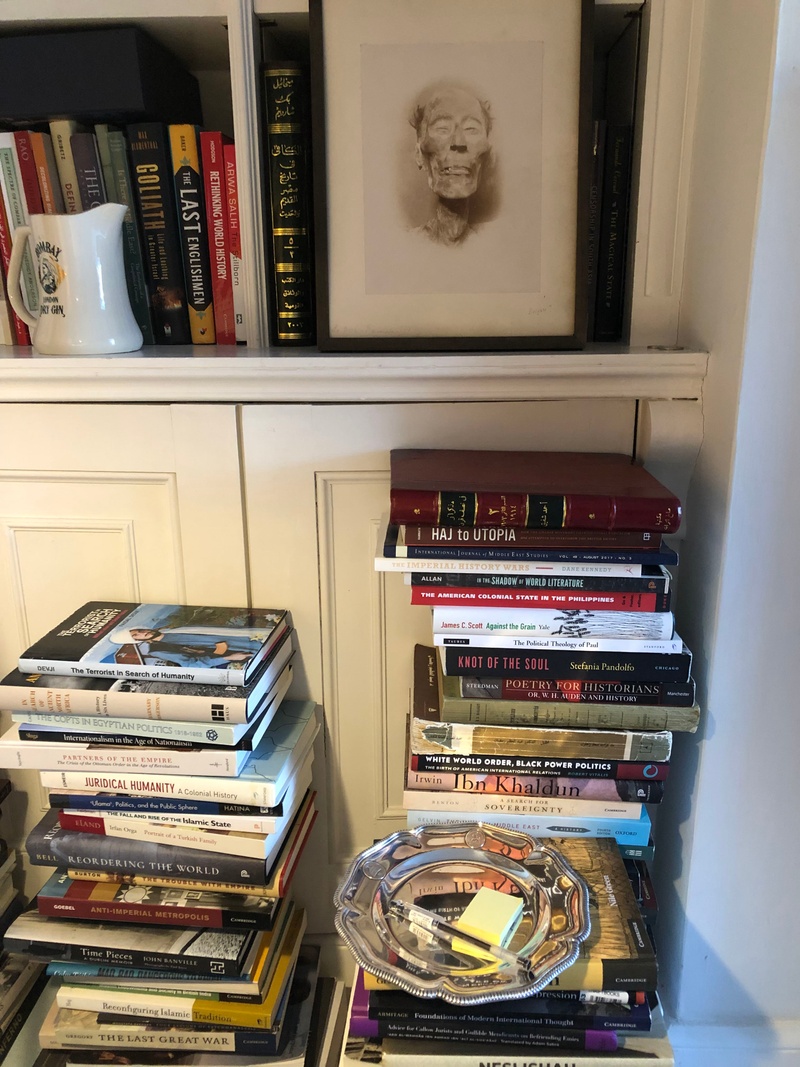
Are you religious?
I grew up in the cracks between religions, neither one thing nor another, which I think led to my curiosity as to how the boundaries between them were formed. When I was a child I was sent to an Episcopalian school, and everyone would get up to take communion. Since I wasn’t baptized, I would be stuck in the pew. I just really wanted to know what the blood of god tasted like. I think this set me off on my quest to study religion.
When you conceive of an idea, after following a particular thread of an obsessive interest all the way to its esoteric core, how do you then shape that idea into a piece of writing, or a book?
I tend to gravitate towards subjects with a sense of majesty, or a sense of expansiveness, and the act of organizing that into a book is a process that I’m trying to figure out every day.
With shorter pieces of writing, I think the first step is to have a good sense of what kinds of ideas or stories would work for what publication, which means reading widely and keeping up. I try to interrogate myself as to why I’m obsessed with a certain thing, and what the hook is, which generally leads me to figure out how I could move readers to care about it, too. And then having a publication’s particular constraints—word counts, rubrics, etc.—to work within is useful.
But with writing the book, the proposal stage actually turned out to be immensely helpful. To begin with, I was really not so keen on doing a proposal at all. I had a sort of nostalgic vision of how writing a book should unfold. I thought I would just write it, and then try to sell the whole thing, finished.
So I wrote about a third of the manuscript, and I was really propelled by a romanticized sense of despair. Like, “Here I am writing this book that no one’s going to want to publish about men turning into gods.” Then friends started encouraging me to work with an agent. But at that point, the book had been in gestation for five years. And that half a decade was so necessary, because when I did start working with an agent, Alex Jacobs, I had a really clear sense of what this book was, what I wanted to fight for, and what I was willing to compromise on as we worked to turn it into something that could also be commercially viable. We worked solidly on the proposal for about eight months before it went out to editors. I was fortunate in that Alex is ultra critical, very intellectual, and he really pushed me, especially to be more explicit about the arguments I make in the book. He tends to gently remind me how peculiar my own train of thought can be.
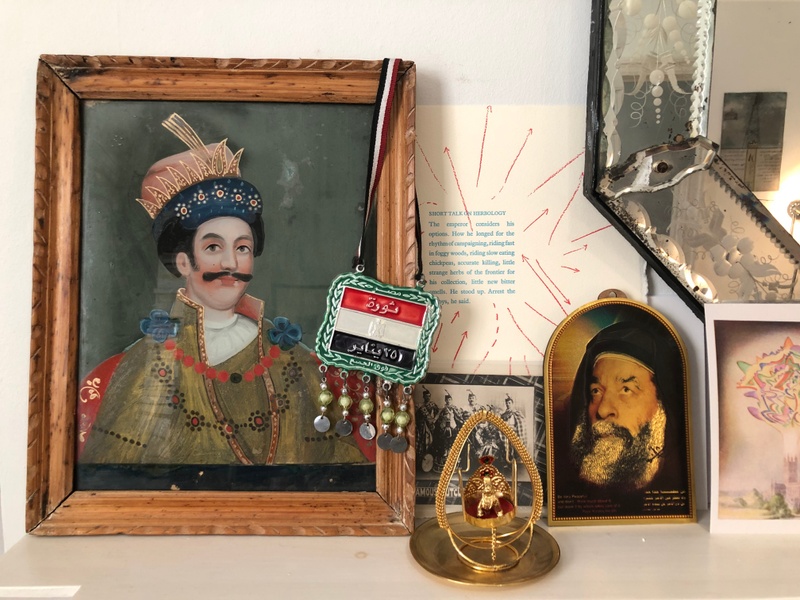
Can you talk more about your self-editing process? How do you take something down from the mythic plane and whittle it into an argument? How do you figure out what is interesting and worth keeping, and what to cut?
On the mechanical level, I’m very into making outlines. I create quite detailed ones, which helps me to see clearly what ideas belong to the argument I’m trying to make, what order they should fall in, and what is just excess enthusiasm. Anything I cut from my draft I will still have saved in another file, so it doesn’t feel like homicide. I keep extremely meticulous notes all in one Scrivener document, so I can always find something quickly with a single word or phrase.
A friend and I joke that the book I’m writing now is “dad nonfiction.” Like, a perfect gift for Father’s Day, for dads who want to read serious stuff. But actually this imaginary reader is a great foil for getting outside my own head. What will the reasonable, centrist dad think about the mythic plane? What does he need to find it compelling, to feel himself implicated in it too?
And then again, it also goes back to idleness, which is the space of intuition. Idleness is the time to see the work as a whole. To let images come to my mind and chase after these threads to find the connections. The real epiphanies of figuring out what I’m trying to say don’t happen when I chain myself to my desk. I let myself into the labyrinth, to get lost in the footnotes of arcane books from the 19th century, or just out on a walk. I need a sense of timelessness to do my best work.
It’s the best feeling.
Yeah, and then you don’t have to answer emails.
Has working as an editor helped you with your writing?
Yes, it was really the process of learning how to edit at Bidoun that transformed my writing. After I left divinity school, I decided that I wanted to de-program myself from academia and I started working at the magazine. In particular, Bidoun’s Mike Vazquez really taught me how to edit. He made me more aware of how there’s this way in which you get excited about something, and you experience the head rush of facts. You fall into a kind of vortex of enthusiasm. While being at school honed my curiosity, watching Mike edit showed me how to carve an argument out of it, to convey what was compelling and urgent. To look at the lines on the page, and tear apart each sentence to see if it still holds true.
After I finished school, the other thing that helped me when I was first starting out was this blog I had called Blogged Be Thy Name. I took it off the internet because it would be a little embarrassing now. But that was a place where I worked out how to connect my scholarly research to larger questions around our present moment and our current politics. It was helpful to just have that kind of free space to experiment—and to fail, too.
Editing other people’s work has made me interrogate myself much more as I’m writing. This process of constantly questioning yourself can drive you mad. But I’m also really grateful when editors let you be as weird as you want to be. There is an omnipotence to editing. This piece I recently wrote for Harper’s is about how God himself is an editor in the Qur’an. I really do think that editors are gods, too.
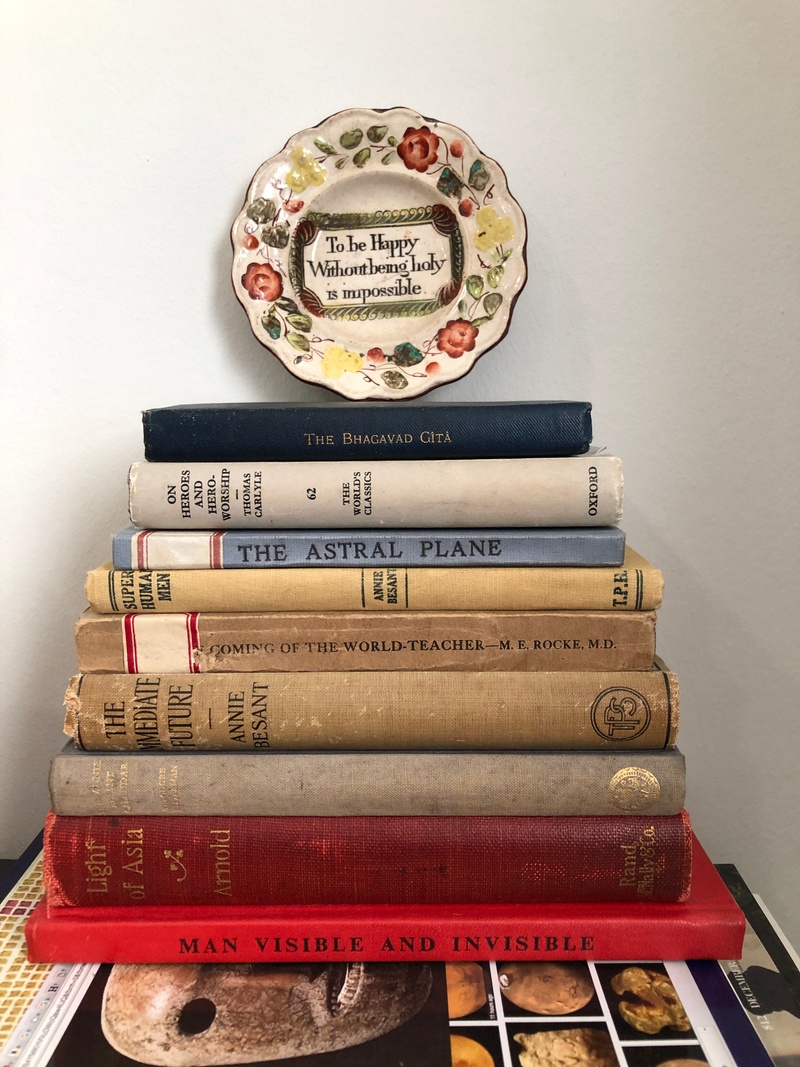
What’s your policy for fighting back edits?
I think, in general, that is one of the hardest parts of being a writer: learning to choose your battles on the level of the line. I try to weigh what’s most important to me and what I can live without. You have to treat it as a kind of out-of-body experience, to step outside yourself and see a sentence or paragraph through as many eyes as possible. When something beloved gets axed, moping about it for a little while is also necessary, too. But in the end it’s all invaluable, as it forces you to defend and deepen your ideas.
When Cossery is asked why he writes, he would reply, “So someone who just read me decides not to go to work.” Why do you write?
Given the subject of my current book, of course I’d have to say, immortality. I don’t think anyone will deify me. But knowing that you’re working towards something that will outlive you does help you to wake up in the always-brutal mornings.
Anna Della Subin recommends:
-
Favorite recent novel: Marcia Douglas’ mystical Rastafari epic, The Marvellous Equations of the Dread
-
New saint I worship: John Keene and his short story collection Counternarratives
-
Cult philosopher: Norman O. Brown. Start with Apocalypse and/or Metamorphosis
-
Preferred procrastination website: The Public Domain Review
-
A black silk eye mask and minimum 10mg of melatonin.
- Name
- Anna Della Subin
- Vocation
- Writer
Some Things
Pagination

